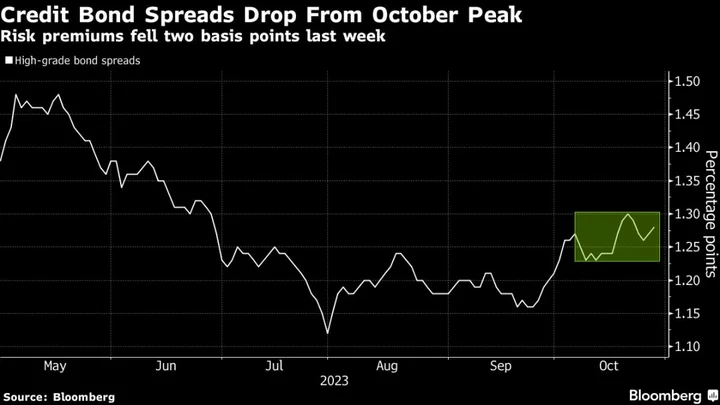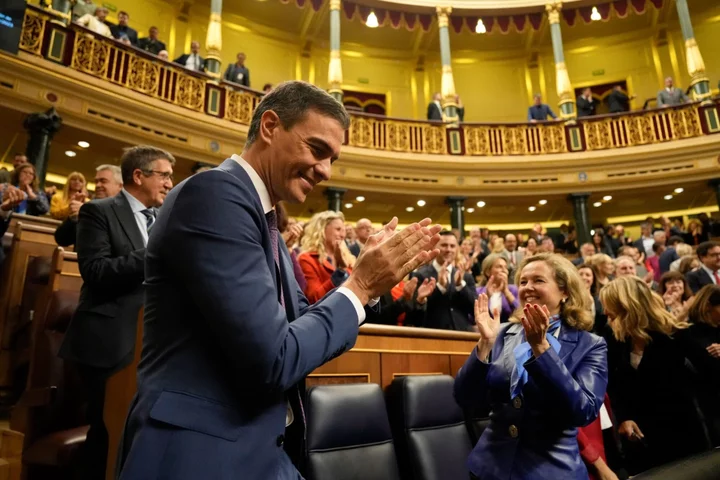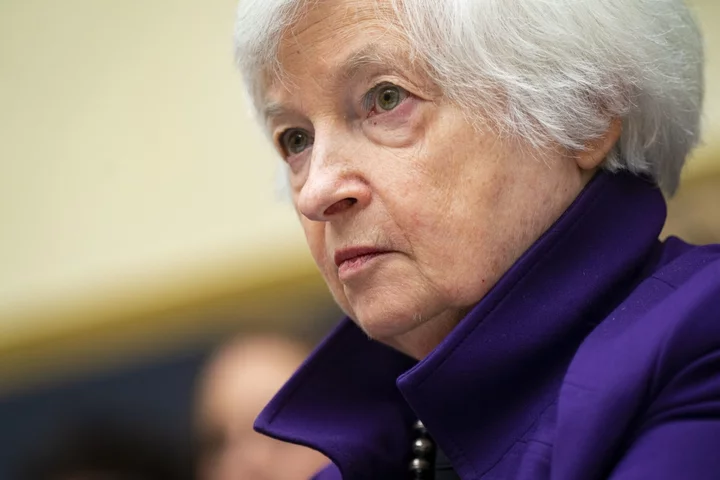Euro-area governments are choosing not to pursue budgetary policies that support the European Central Bank’s efforts to tame inflation, according to Governing Council member Klaas Knot.
Central bankers are confronted with a fiscal stance that is “completely out of line with the cyclical position of our economy,” the Dutch policymaker told a panel discussion Friday in Slovakia. “And there is an unwillingness to be helpful in supporting us in trying to stabilize the euro-area economy.”
The ECB has repeatedly highlighted that governments’ support for households and businesses during the energy crisis was too broad and stoked inflation just as the Governing Council was hiking interest rates at a record pace.
Slovenian policymaker Bostjan Vasle said at the same event that “fiscal was left behind” after monetary policy exited its expansive stance and became tight.
“For almost four years we’re seeing a still expansionary orientation of fiscal policy,” he told the Tatra Summit. Whether interest rates are now at their peak “depends, of course, on the actual data but also on the stance of fiscal policies.”
Their Slovak counterpart agreed.
“My perception is that we really miss the generation of finance ministers from the time of austerity,” said Peter Kazimir, who was in charge of his country’s purse strings from 2012 until 2019. Now “we have just ministers who are spenders, you know, so that’s coming from the Covid crisis, from this geopolitical crisis, which is here, with suspension of rules.”
EU limits designed to avoid runaway borrowing have been suspended since 2020 to allow the bloc’s governments leeway to support households and companies. European capitals are still at loggerheads as they scramble to agree a revamp of the fiscal rules before the old pact is reinstated on Jan. 1.
An aligned stance of finance ministries and central banks is key in the current situation, said Madis Muller, who represents Estonia on the ECB Governing Council.
“It’s just so much easier to get the inflation under control if the fiscal and monetary policies are supporting each other and moving in the same direction and this is not what we are seeing at the moment,” he said at a panel at the Tatra Summit on Saturday.
The ECB’s tightening cycle has come at the cost of economic weakness: Gross domestic product expanded just 0.1% in each of the first two quarters of the year and that pace probably continued in the three months through September.
ECB Executive Board member Isabel Schnabel said in an interview published earlier on Friday that officials at the ECB “cannot rule out” a recession in the euro region, though a slump may be restricted.
(Updates with Estonia’s Muller starting in eighth paragraph)









